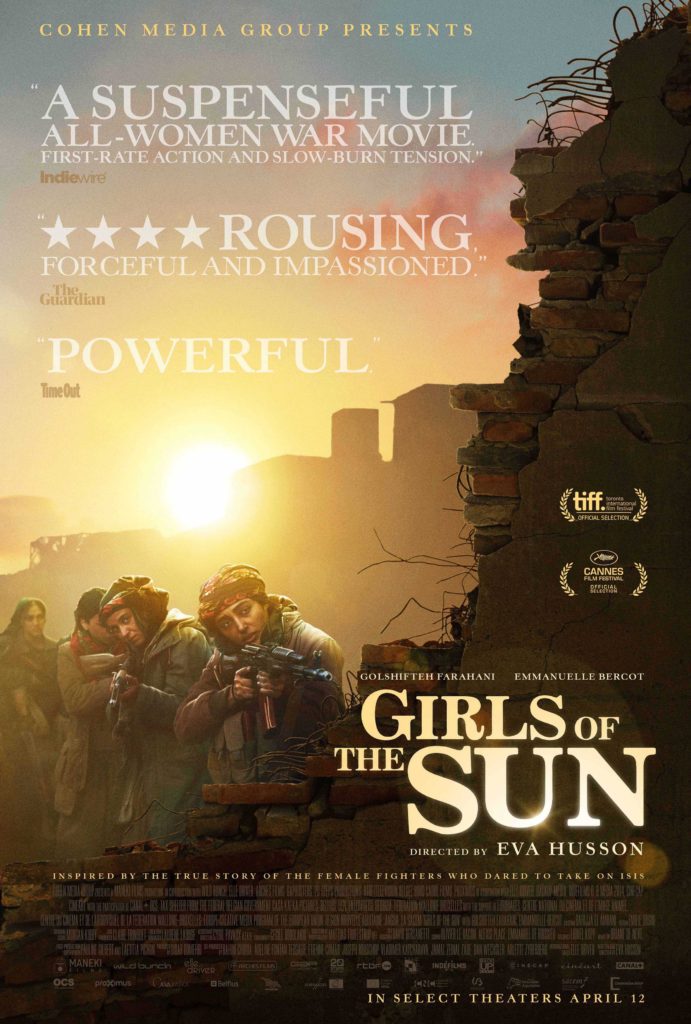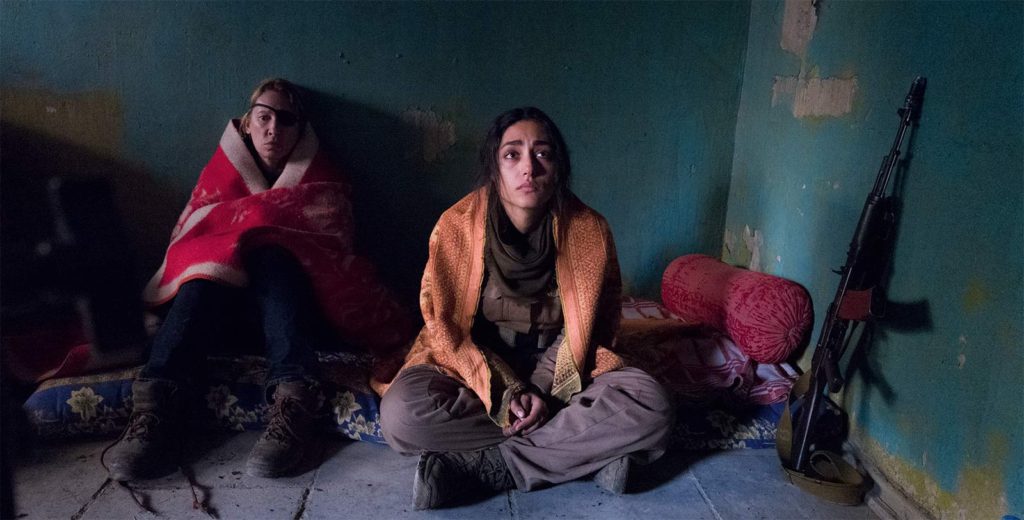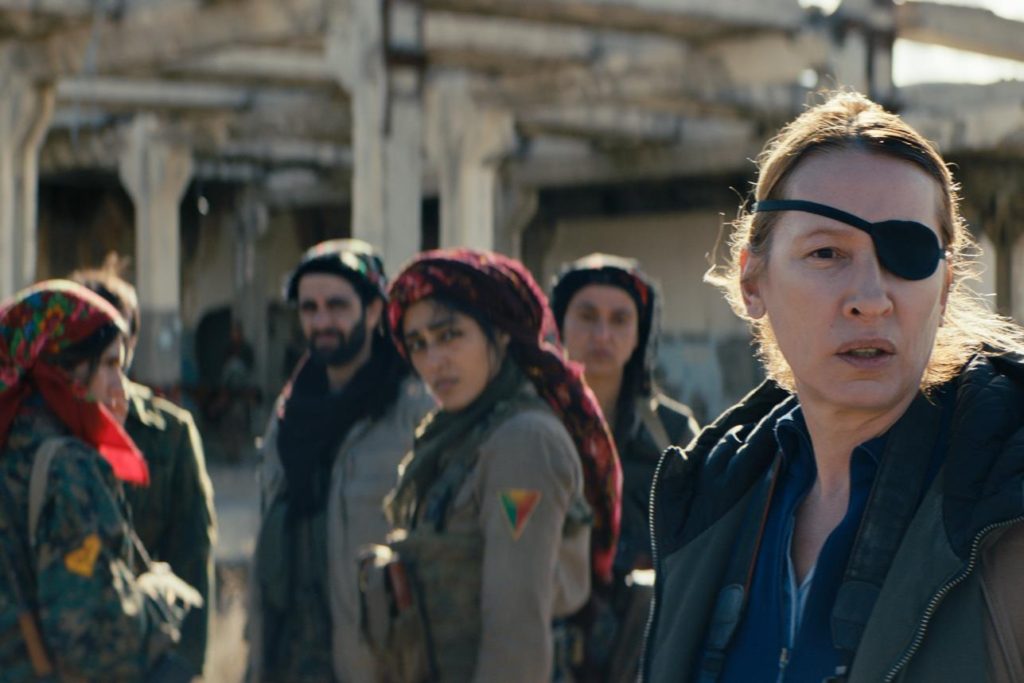Girls of the Sun: Film Review
In a world full of films about war, where men dominate the silver screen in heroic battles that far too often glamorise the futility of it all, how refreshing it is to see a story told from the female side.
 While fictional, writer/director Eva Husson’s Girls of the Sun is based on a real life, all-female Kurdish combat unit, a unit that is made up of not only volunteers, but mothers, daughters, and more tragically ex-captives. These are women who were ripped from their families by Islamic militants, many of them raped, tortured and sold into domestic slavery; women who despite it all did not run away once their freedom was secured, but instead chose to return and fight for their land. The fact that the Jihadi’s believe that to be killed by a woman brings forth dishonour, all the motivation they need.
While fictional, writer/director Eva Husson’s Girls of the Sun is based on a real life, all-female Kurdish combat unit, a unit that is made up of not only volunteers, but mothers, daughters, and more tragically ex-captives. These are women who were ripped from their families by Islamic militants, many of them raped, tortured and sold into domestic slavery; women who despite it all did not run away once their freedom was secured, but instead chose to return and fight for their land. The fact that the Jihadi’s believe that to be killed by a woman brings forth dishonour, all the motivation they need.
Joining them on this particular mission to reclaim headquarters in the centre of the city, a French war journalist. Having already lost an eye in Homs and her husband to a landmine in Libya, Mathilde (Emmanuelle Bercot) has now arrived in Iraq in a move that could be viewed as reckless considering she has a young daughter at home. But as the film progresses her need to be there and complete her assignment becomes much clearer. Those familiar with the work of many of the war correspondents of the last decade no doubt recognising the similarity between the character of Mathilde and real-life American journalist Marie Colvin who was tragically killed by an IED in Homs, Syria seven years ago.
 Enter Bahar, leader of the Girls of the Sun and a woman who in a former life was a happily married lawyer with a young son. Now her look is one of the permanently haunted, her nights spent dozing, never sleeping, the rage inside her belly burning bright.
Enter Bahar, leader of the Girls of the Sun and a woman who in a former life was a happily married lawyer with a young son. Now her look is one of the permanently haunted, her nights spent dozing, never sleeping, the rage inside her belly burning bright.
Adopting a non-linear plotline, Girls of the Sun slowly unfolds the story of Bahar before us, Golshifteh Farahani an absolutely mesmerising watch who never overplays a scene despite some of the heavy material contained within; and it is heavy material. While Husson never allows it to fall into the territory of being gratuitous for the sake of it, the subject matter does deal with the topics of rape and torture alongside the usual atrocities of war.
 While the action scenes such as Bahar assisting a fellow captive in the midst of giving birth over the border line or leading her unit through landmine infested underground tunnels are handled effectively giving the viewer a shot of adrenaline, they are few and far between, the length of the movie often felt as Husson slowly moves between Bahar and Mathilde, which in turn leads to a secondary problem; the underdevelopment of Mathilde. Due to her sporadic time in front of the camera the audience never has the chance to truly bond with her or her story; when towards the end of the film she is given the chance to express her thoughts at length it is sadly too little too late, her words while poignant never truly hitting their intended mark.
While the action scenes such as Bahar assisting a fellow captive in the midst of giving birth over the border line or leading her unit through landmine infested underground tunnels are handled effectively giving the viewer a shot of adrenaline, they are few and far between, the length of the movie often felt as Husson slowly moves between Bahar and Mathilde, which in turn leads to a secondary problem; the underdevelopment of Mathilde. Due to her sporadic time in front of the camera the audience never has the chance to truly bond with her or her story; when towards the end of the film she is given the chance to express her thoughts at length it is sadly too little too late, her words while poignant never truly hitting their intended mark.
The script too is often a little clunky and features a few cliché’s that detract from the underlying courage that those who have actually lived these stories have and continue to display, however Husson still succeeds – despite little development of secondary and minor characters – to show how a form of sisterhood is forged between these women, especially during scenes where they sing in unison, their words conveying their beliefs about not only themselves but about their country.
While an effective and somewhat emotive overview, and a film that is certainly worth seeing for Farahani’s inspirational performance alone, Girls of the Sun doesn’t quite provide the satisfaction sought when dealing with such complicated cultural and religious subject matter.
~Sarah Kidd
- Theatre Review: Meremere – Q Theatre – 10th April 2021 - April 14, 2021
- Deep, Q Theatre, 25 February 2020: Theatre Review - February 29, 2020
- No Holds Bard, Q Theatre, 25 February: Theatre Review - February 28, 2020
